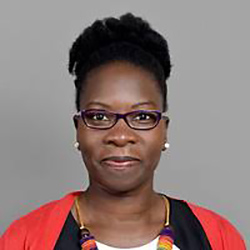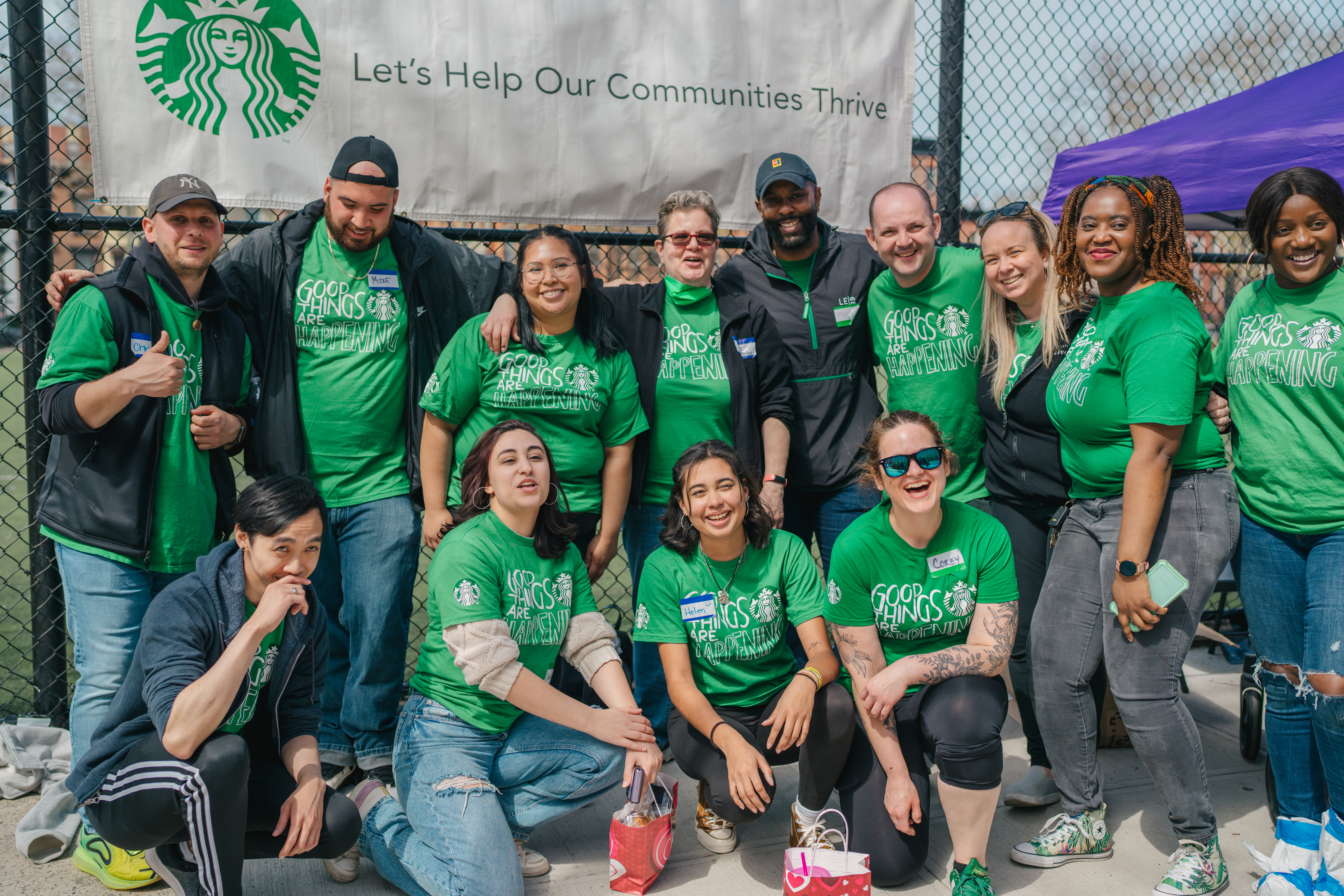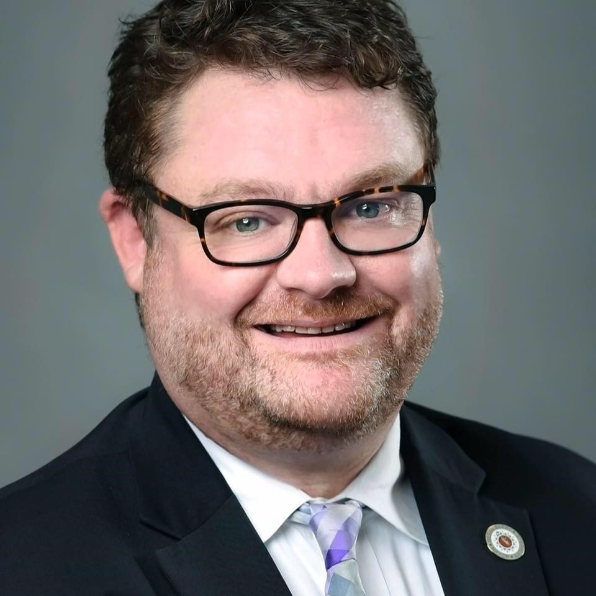Dr. Christine Buzinde
School Director and Professor
School of Community Resources and Development
Arizona State University
Prior to joining Arizona State University, Christine Buzinde was an assistant professor at Penn State University from July 2007 to July 2012. She joined the School of Community Resources and Development in August of 2012. Her research focuses on two areas: community development through tourism and the politics of tourism representations.
Buzinde’s work on development adopts a grassroots approach and it aims to understand the relationship between community well-being and tourism development within marginalized communities. Tourism development has been proposed by the United Nations World Tourism Organization (UNWTO) as one of the tools through which the Sustainable Development Goals (SDGs) can be accomplished to enhance well-being within South nations.
However, questions of enduring interest posed within Buzinde’s research include: Are the well-being indicators, such those evidenced in the SDGs, (mis)aligned with wellbeing indicators articulated by communities in South nations? How does tourism development impact, if at all, the indicators articulated by communities in South nations? What is the cost to society of placing social welfare within a business paradigm and how does this varyingly impact the various generations within a given community?
Buzinde’s work on the politics of tourism representations principally views tourism texts as cultural repositories through which issues of inclusion/exclusion, North/South and core/periphery can be understood. Scholarly explorations on tourism representations are central to our understanding of ways in which tourism is entangled with issues of power, oppression, agency and resistance. Buzinde has conducted research in the United States, Tanzania, Ecuador, Mexico, India and Nepal. Her work has been featured in top tier academic journals within tourism studies and outside the field as well as at national and international conferences. She serves on the editorial board of Annals of Tourism Research and she is also a faculty affiliate in the Tourism Lab at University of Illinois Urbana-Champaign.
Erik Cole
Former Director of ASU’s Watts College Design Studio for Community Solutions
Arizona State University
Vice President of Community Engagement
Schnitzer Properties, Inc.
A seasoned leader, Erik Cole has worked at the national, state and local levels to empower and uplift
communities of all sorts. Professionally, he has held a wide range of positions – from holding local
elected office to leading public policy campaigns to nonprofit executive. Currently, he lives in Portland,
OR and is the VP for Community Engagement with a major real estate development firm. Drawing upon
years of experience in local and state government, Erik is a public policy practitioner who is passionate
about tackling large municipal problems, particularly those that affect the economic wellbeing of our
most vulnerable residents.
Erik led the development of the Design Studio for Community Solutions, at Arizona State University’s
Watts College of Public Service and Community Solutions as well as the Maryvale One Square Mile
Initiative. Erik has remained engaged with the development of this curriculum as a subject matter co-
lead.
Erik was named Nashville’s first Chief Resilience Officer in 2016 after serving in several other community
development leadership roles in the Mayor’s Office. Prior, he was an elected Metro Councilmember for
eight years, representing a rapidly changing urban district in East Nashville.
As CRO, Erik was charged with helping Nashville build a platform of resilience prepared for natural,
economic, and social shocks and stresses. Erik has multi-sector experience in public policy, community
engagement and development, homelessness solutions, and strategic planning.
Content Contributors
Robert F. Ashcraft is the executive director of the Lodestar Center for Philanthropy and Nonprofit Innovation at Arizona State University (ASU), the Saguaro Professor of Civic Enterprise in ASU's School of Community Resources and Development (SCRD) and a Senior Global Futures Scholar, Julie Ann Wrigley Global Futures Laboratory. Founded in 1999, the ASU Lodestar Center has emerged as a global leader in advancing effective philanthropic and nonprofit practice as a distinctive community development strategy. Through research, education, technical assistance and convenings, the Center advances nonprofit leaders and philanthropists to solve problems, to realize a community’s highest aspirations and to accelerate social impact. Dr. Ashcraft also teaches courses in nonprofit management and philanthropy, along with the capstone course for students in ASU’s graduate degree program.
Richard Knopf is professor of Community Development at Arizona State University, and directs ASU’s Partnership for Community Development and Osher Lifelong Learning Institute. Knopf is a recipient of the Community Development Society’s Community Development Achievement Award – recognizing his 40 years of practice as a community organizer and scholar. His passion is to co-create organic leadership development processes, particularly in the context of marginalized communities. His research has focused on grassroots community organizing, sustainable community development practices, and life quality enhancement. He has published over 150 journal articles, book chapters and technical reports pertaining to the broad themes of sustainable community development, community life quality, and environmental management.
Alberto Olivas is the Founding Executive Director of the Congressman Ed Pastor Center for Politics & Public Service at Arizona State University, an initiative to help students learn the skills for effective civic and political engagement. Apart from this role, Alberto provides training and technical assistance on issues related to civic education, public dialogue, and public engagement. Prior to coming to ASU, Alberto was Executive Director of the Center for Civic Participation serving the ten colleges in the Maricopa Community College District. Previously, Alberto was Vice President of the Arizona Hispanic Chamber of Commerce, and has served in appointed leadership positions for Arizona Governor Jane Dee Hull, as Director of the Governor’s Office for Equal Opportunity; and as State Voter Outreach Director for Arizona Secretary of State Betsey Bayless. Governor Janet Napolitano appointed Alberto to the Arizona Commission of Indian Affairs.
Ascala Sisk is a national leader committed to bringing about more just and equitable communities through collaborative practices that change culture, structures, and systems. Areas of focus include equitable community development, affordable housing, creative placemaking and health equity. Ascala is currently an advisor on American Rescue Plan strategy in the federal government and a consultant providing strategy assistance, coaching and facilitation to foundations and nonprofits. Ascala is experienced at supporting diverse, multi-sector groups to use policy, investment, and collaborative practices to advance their priorities and draws on previous experience as Deputy Director at the Center for Community Investment at the Lincoln Institute of Land Policy and Vice President for Community Initiatives at NeighborWorks America. Ascala has a Master's in Public Policy with a specialization in Public Sector Financial Management from University of Maryland, College Park. Her undergraduate degree is in Urban Studies from Brown University.
Erin Schneiderman serves as a Clinical Assistant Professor and program director for the Special Event Management program at Arizona State University. She prides herself on creating experiential learning opportunities and ensuring her students are workforce ready upon graduation. Schneiderman earned her Masters of Education (Community College and Higher Education) from Northern Arizona University and is a Certified Special Event Professional (CSEP), Sustainable Event Planner certificate (SEPC) holder, graduated from the Protocol School of Washington and was recently named one of the Top 100 event professionals in the industry by Eventex.
Craig Talmage earned his Ph.D. in Community Resources and Development at Arizona State University and now teaches courses in local development, tourism development, organizational behavior/development, nonprofit management and leadership, and social entrepreneurship. Talmage has more than fifteen years of combined not-for-profit, nonprofit and public sector research and leadership experience. Before becoming an educator, he founded and operated a research consulting practice for small businesses and nonprofits in Arizona. He also serves as the interim editor-in-chief of Community Development. At HWS, he serves as the faculty liaison for the Center for Community Engagement and Service Learning in addition to many other service roles he has performed in the faculty governance and campus life structures. He still teaches asynchronously for ASU’s School of Public Affairs on community resilience and community conflict resolution.
Points of Light
This course was developed in partnership with Points of Light, a nonpartisan organization with a mission to inspire, equip and mobilize people to take action that changes the world. They are connectors of people and organizations to passion and purpose, providing the tools to make meaningful and sustainable change. Points of Light recognizes that, together, we can create a world where no one sits on the sidelines. To learn more about the Points of Light vision, visit pointsoflight.org.



